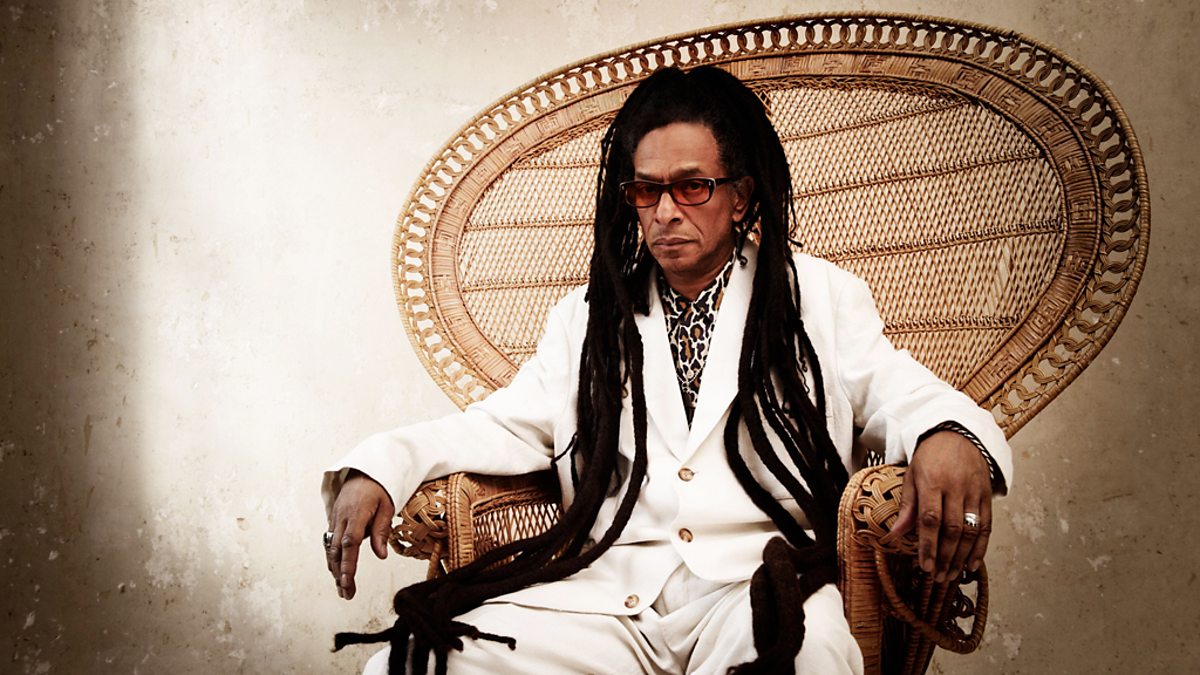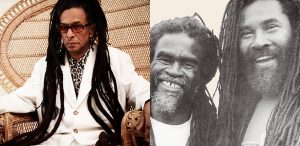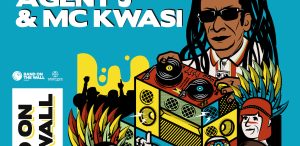
Don Letts discusses brand new music, old school filmmaking and his Carnival Sound club night
It was during the mid-to-late-seventies that filmmaker, DJ and musician Don Letts, first became involved in London’s burgeoning punk and reggae scenes. He was chiefly responsible for the cross-pollination that occurred between the movements: playing dub records to crowds of punks at the Roxy at a time when punk records had yet to be cut, even defending the punk movement before artists sceptical about it, such as Bob Marley. Since that time, Letts has maintained a career in music: directing numerous films and documentaries and playing with Big Audio Dynamite, as well as writing, DJing and broadcasting. But speaking to us ahead of his Carnival Sound clubnight at Band on the Wall on Saturday, Letts is swift to dispel any misconceptions about his creative prestige.
‘I want to make a documentary about afrofuturism,’ he explains, ‘I’m out there touting the idea at the moment. It’s a soul destroying process I tell you. It’s interesting you saying: “now that you’ve reached this point…” you’d think that right? You’d think I could come up with an idea and go “right!” and it’d happen. It ain’t like that bredren. You have to go around with this soul destroying process like I’m nobody from nowhere that ain’t done sh*t and ain’t got a GRAMMY.’
His candid manner is refreshing. Letts has committed his working life to the music he loves, but like any DJ, artist or broadcaster worth their corn, he’s always looking to evolve and appreciate new art. Asked if any particular song has stopped him in his tracks this year, he states, ‘Ask me that question tomorrow and I’m going to tell you something else,’ but affirms that Vex, a new cut by Nazamba on The Bug’s PRESSURE label, has done just that.
‘He’s a Jamaican dub poet but I guess he’s got involved with The Bug somehow, ‘cause he’s come out with this piece of politicised, bass-heavy sh*t that’s very intense and very on the money for the situation right now.’
The Don suggests that his music taste isn’t necessarily as broad as we attempt to give him credit for, but elaborates upon what the sound of carnival means today and how that reflects in the sound of his clubnight.
‘Carnival in the 21st century, f***ing all bets are off man! It’s been that way since the mid eighties. Reggae crashed in in the early seventies, jungle crashed in in the eighties,’ he explains, ‘way back when there was even bloody techno! Which I maintain does not work at the carnival.’ Letts feels there is a framework to the carnival sound, however. ‘The Brazilians are all down there doing their South American thing and that sits there nicely, there’s an unspoken connection to it all… there is the underlying bass thing without a doubt. I’m of Jamaican heritage so I always see it from the kind of bass-heavy perspective, but for people of the small [Caribbean] islands it’s about soca and calypso and that’s part of the mix too. It ain’t all about just that anymore, the UK is well represented. Garage crashed in there, hip-hop crashed in there… it ain’t about some recreation of the nostalgic idea of what the carnival’s about. The fact that it is an all-embracing vibe. It’s hard, funnily enough, putting it into words. You just know it and you feel it, when you’re there and you’re present. It [the clubnight] is definitely a reflection of what carnival is today and that can accommodate stuff that’s yet to come. And that, I think is the beauty of the carnival, it charts the progression of urban music over the last forty years and it’s not been set in stone, it’s a growing, evolving thing.’
Letts’ experience gives credence to his sentiments. He isn’t joking when he states that he’s ‘as old as Rock ‘n’ Roll’ – he has lived through and experienced virtually every significant development in British contemporary music. He’s also been around long enough to have worked with both analog and digital technology, stretching back to the Super 8 camera with which he shot his first punk footage. But quizzed about the pros and cons of each format, he picks no clear winner.
‘There ain’t no verses! It’s all good! There’s positive and negatives of both. I’m of the vinyl generation and I’ve got an analog attitude,’ he states, ‘it’s just about getting the balance right. For instance, the digital age — sweet as it is — what it does is, it’s almost too good and removes a lot of mistakes. I maintain that the evolution of the music I like, of rock ‘n’ roll itself, was created from f***ing mistakes. The digital world tends to get rid of that. I remember clearly during the analog days when you had to literally spool through your shit, you got to know your material. Quite often, you’d see little things on the end of a reel or something, that might be a mistake, but would save the f***ing day. I was editing on a thing called a Steenbeck. You’d be sticking f***ing bits of film together, so I know what I’m talking about! You’re forced to make your mind up and I like that. I like saying ‘this is the definitive thing’.
In addition to his radio broadcasting, Letts has been presenting his Reggae 45 podcast for some time now. Following episodes focussed on musical movements close to his heart, he touches next upon the sound of lovers rock. ‘Yeh, I’m working on that now. It’s an interesting one because that was going on just as the whole punk rock thing was about to explode. The whole lovers rock thing starts about ‘75, and it was really the soundtrack to the black youth’s budding sexuality. It’s still very present, funnily enough, if you think about somebody like Hollie Cook for instance. You listen to some of her stuff and that has echoes of lovers rock all over it. So it’s become part of the fabric of popular music now, that sound, but I’m focussing on what I would call the golden age of lovers rock, ‘75-’82, when the big guns came in and Jamaica jumped on the bandwagon and you had people like Dennis Brown and Gregory Isaacs doing their bit as well’.
Keep your eyes peeled on Mixcloud for the new show, check out a past episode below and pick up tickets for Don Letts Carnival Sound clubnight, featuring Grooverider, MC Kwasi and Jamie Groovement, here.








